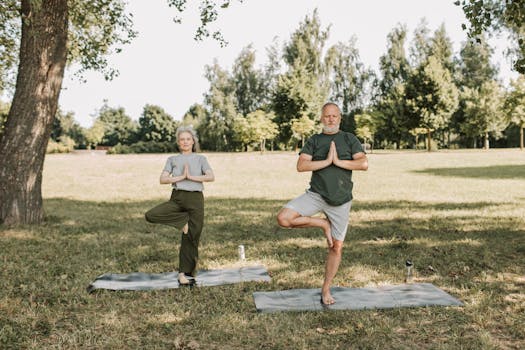
Regular Exercise and Mental Health: Benefits and SEO
Regular exercise is a crucial aspect of maintaining good mental health. Exercise has been shown to have numerous benefits on mental health, including reducing stress and anxiety, improving mood, and even alleviating symptoms of depression. In this article, we will explore the benefits of regular exercise on mental health and provide tips on how to incorporate physical activity into your daily routine.
Benefits of Regular Exercise on Mental Health
Regular exercise has been shown to have a positive impact on mental health in several ways. Some of the benefits of regular exercise on mental health include:
- Reducing Stress and Anxiety: Exercise has been shown to reduce stress and anxiety by releasing endorphins, also known as feel-good hormones, which can help to calm the mind and body.
- Improving Mood: Regular exercise has been shown to improve mood and reduce symptoms of depression. This is because exercise releases endorphins, which can help to improve mood and reduce stress.
- Improving Sleep: Exercise has been shown to improve sleep quality, which is essential for good mental health. Poor sleep has been linked to a range of mental health problems, including depression and anxiety.
- Increasing Self-Esteem: Regular exercise can help to improve self-esteem and body image, which can be particularly beneficial for individuals who struggle with low self-esteem or body dysmorphia.
Types of Exercise for Mental Health
There are many types of exercise that can be beneficial for mental health. Some of the best types of exercise for mental health include:
- Cardiovascular Exercise: Cardiovascular exercise, such as running or cycling, can help to reduce stress and anxiety by releasing endorphins.
- Strength Training: Strength training, such as weightlifting or resistance training, can help to improve mood and reduce symptoms of depression.
- Yoga and Pilates: Yoga and Pilates can help to improve flexibility and balance, while also reducing stress and anxiety.
- Group Fitness Classes: Group fitness classes, such as dance or aerobics, can provide a social outlet and help to reduce feelings of loneliness and isolation.
How to Incorporate Exercise into Your Daily Routine
Incorporating exercise into your daily routine can be easy and fun. Here are some tips on how to get started:
- Start Small: Start with small, achievable goals, such as taking a short walk each day or doing a few jumping jacks during commercial breaks while watching TV.
- Find an Exercise Buddy: Find a friend or family member to exercise with, which can provide motivation and accountability.
- Try a New Activity: Try a new activity or exercise class, which can help to keep things interesting and prevent boredom.
- Make it Convenient: Find ways to make exercise more convenient, such as exercising at home or finding a gym that is close to work or home.
Conclusion
Regular exercise is a crucial aspect of maintaining good mental health. By incorporating physical activity into your daily routine, you can reduce stress and anxiety, improve mood, and even alleviate symptoms of depression. Remember to start small, find an exercise buddy, try a new activity, and make it convenient. With regular exercise, you can improve your mental health and overall well-being.





